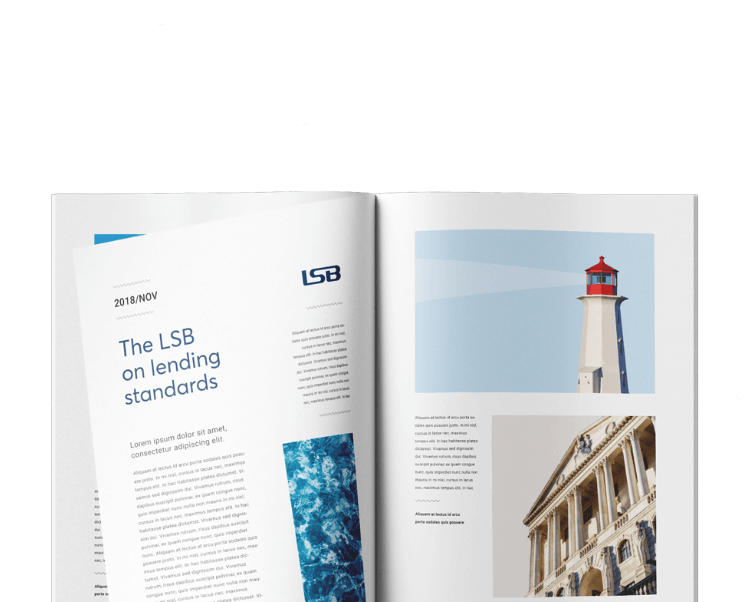As part of its response to the coronavirus epidemic, the LSB’s Insight & Support team published three thought pieces focusing on authorised push payment (APP) scams, vulnerability, and SME financial difficulty. We looked at each of these topics through the perspective of the impact from COVID-19 for the benefit of those firms registered to the Standards of Lending Practice for both personal and business customers.
This document provides a high-level overview of those three topics, including some of the questions and themes we covered. By working with our registered firms during this challenging time, we aim to help them support customers impacted by the coronavirus epidemic.
Vulnerable customers
Firms registered to the Standards of Lending Practice understand the importance of treating vulnerable customers fairly and offering appropriate support. Due to the coronavirus, many people who would not previously have been considered vulnerable may now be at risk and require assistance.
To help our registered firms support these customers, we considered a range of questions including the impact on those self-isolating, the potential for an increase in problem gambling, how to support customers whilst branches may be temporarily closed, and how firms can support bereaved customers during the epidemic.
One key theme relating to the treatment of vulnerability during COVID-19 was firms’ approach to signposting. Coronavirus has affected customers in many different ways and therefore firms may find that they are not best placed to offer guidance or support on every matter. Because of this, it is important that firms consider where a third-party organisation may be able to help. By looking at their existing process and practises in relation to signposting, firms can consider whether a change is required to account for the impact of coronavirus. For example, by looking at the resources and lists of third-party organisations provided to first line staff, firms could see if these are reflective of new organisations or support channels that are available for customers affected by COVID-19.
Signposting is only possible if first line staff understand the options that are available for customers and can properly ‘sell the benefits’ of seeking assistance. Staff can then listen to a customer’s situation, help where they can from the banking and finance perspective, and then signpost to suitable help. Any resource or training provided to staff should ensure that it covers the customer types the firm serves, so that the most appropriate organisation is signposted towards. The support required by personal and business customers will sometimes differ due to their different structures and the potential challenges they face, so any signposting should be tailored with this in mind.
Quality assurance processes and feedback loops should ensure that the timing, tone and ‘sell’ of any signposting is delivered in the best possible manner, so the customer understands why they are being advised to contact a third-party organisation. Well delivered examples of signposting can be used within training or call calibration sessions, to help staff understand ‘what good looks like.’
APP Scams
Coronavirus has created an opportunity for scammers and there have been numerous examples of different types of scams related to the epidemic, with customers targeted at a time of particular vulnerability. Registered firms and those tasked with protecting customers from scams are also operationally stretched, creating a challenge in responding to this increased risk.
This second thought piece looked at how registered firms are able to handle a potential increase in scams whilst investigator numbers may diminish through illness, the impact of temporary branch closures on scam education, and how customers new to interacting online can be protected from scammers.
Due to the potential for scams related to coronavirus, it is vital that firms stay alert to the different types of scams being perpetrated. By doing this, firms can consider how to best protect their customers and train their staff in both education, prevention, and investigation. Firms’ fraud departments are responsible for monitoring trends using a mixture of marketing intelligence, management information and analysis of the scam types being reported by customers. This insight should then be used to train first line staff, including fraud investigators, into the types of scams being seen. It also enables firms to tailor their defense strategy to account for any new scams.
Coronavirus is clearly the central event at the present moment, although it does not mean that everything is related to it. For example, if a firm sees an increase in scams it may be tempting to attribute it to coronavirus and the action being taken to combat it, such as customers self-isolating. However, without further steps being taken to identify scams directly related to COVID-19, then firms cannot be sure if scams are increasing for a different reason. The creative use of intelligence and management information can help firms ascertain whether any increase in scams is because of opportunities presented by coronavirus.
Alongside educating staff on the first line about new types of scams, customers can also be made aware using scam education material, for example, on firm websites. This allows customers, and the friends and relatives of those who may be particularly vulnerable, to learn about the risks scammers pose and how to take steps to mitigate the risk of falling victim to a scam.
Financial difficulties
Coronavirus and the steps taken to combat its effects has had an immediate and potentially devasting impact on thousands of SME businesses. Forced closures have resulted in a total loss of income across many different sectors, whilst other businesses have had their operating models affected due to staff shortages and social distancing requirements. The Government has put in place measures such as furloughing and business support loan schemes, with a key aim of supporting as many businesses as possible.
Despite the support available, many SMEs are going through or will end up in financial difficulties. The financial services sector, including registered firms, will play a critical role in assisting SMEs through coronavirus. To do this, firms face a number of challenges, such as how to prioritise which business customers need the most urgent assistance, having relationship management models that work in a time of social distancing, balancing the demand on firms’ Credit teams, and engaging turnaround professionals in the most effective manner.
In relation to how registered firms can manage demand on their specialist Credit teams, we looked at how SMEs in financial difficulties should be triaged on the first line. This is achieved by having relationship managers and other business banking colleagues who understand what they can do to assist a customer in financial difficulties. Training and resources can equip staff to help SME customers, for example, using forbearance measures, signposting, or other tools, without the need for Credit. Firms can also review the policy and processes that exist in relation to referrals to Credit, to ensure that this specialist resource is available to assist those customers who cannot be helped elsewhere.
For information about registering to the Standards of Lending Practice, or if you are interested in learning more about how the LSB may be able to support your firm, contact insight@lstdb.org.uk or use the details below.
If you are a registered firm and need a copy of the original thought pieces, do let us know.
Anna Roughley – Head of Insight & Support
annaroughley@lstdb.org.uk
07392 867 176
Harry Hughes – Senior Insight & Support Manager
harryhughes@lstdb.org.uk
07387 108 498
Download the PDF of this article here.





